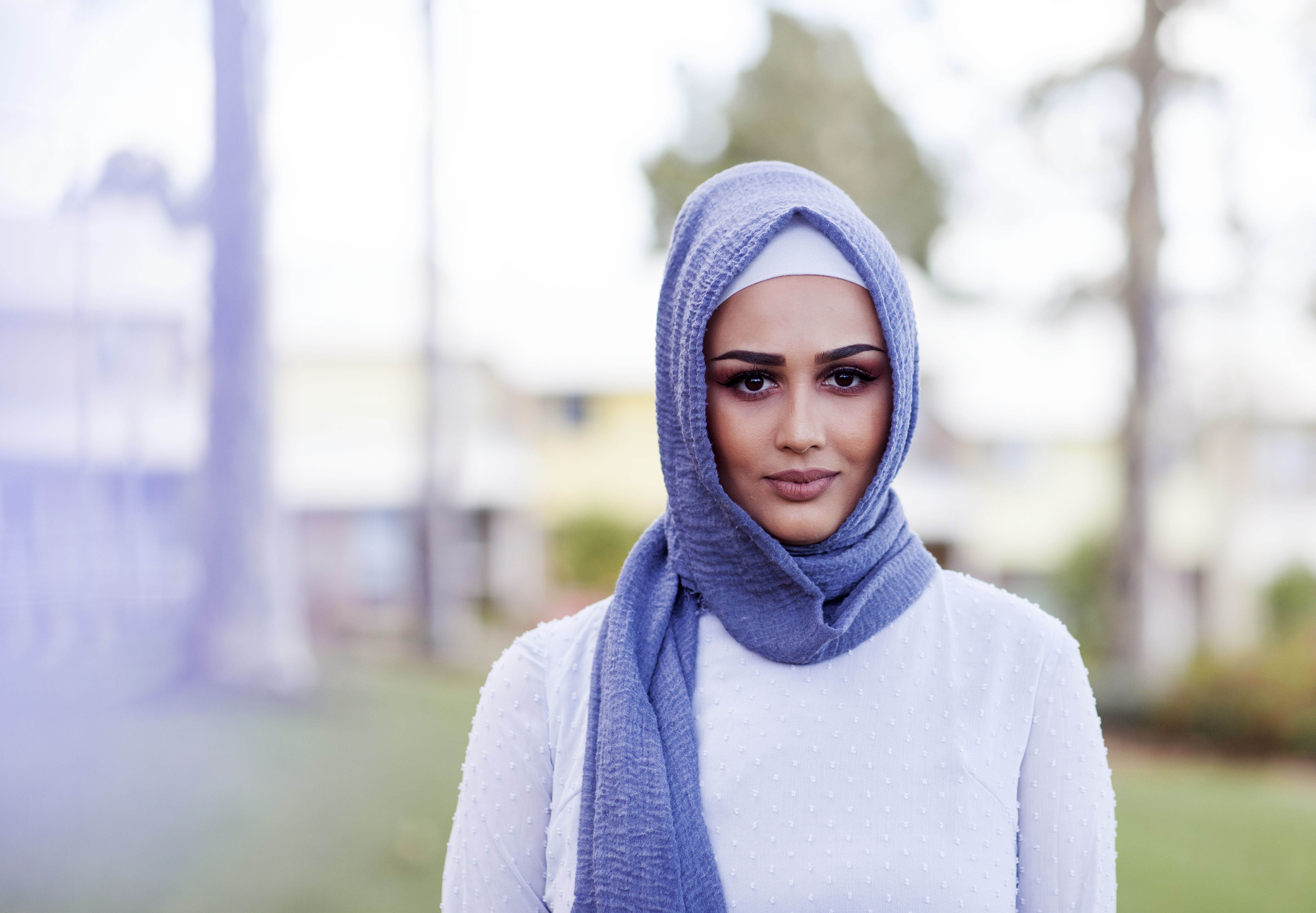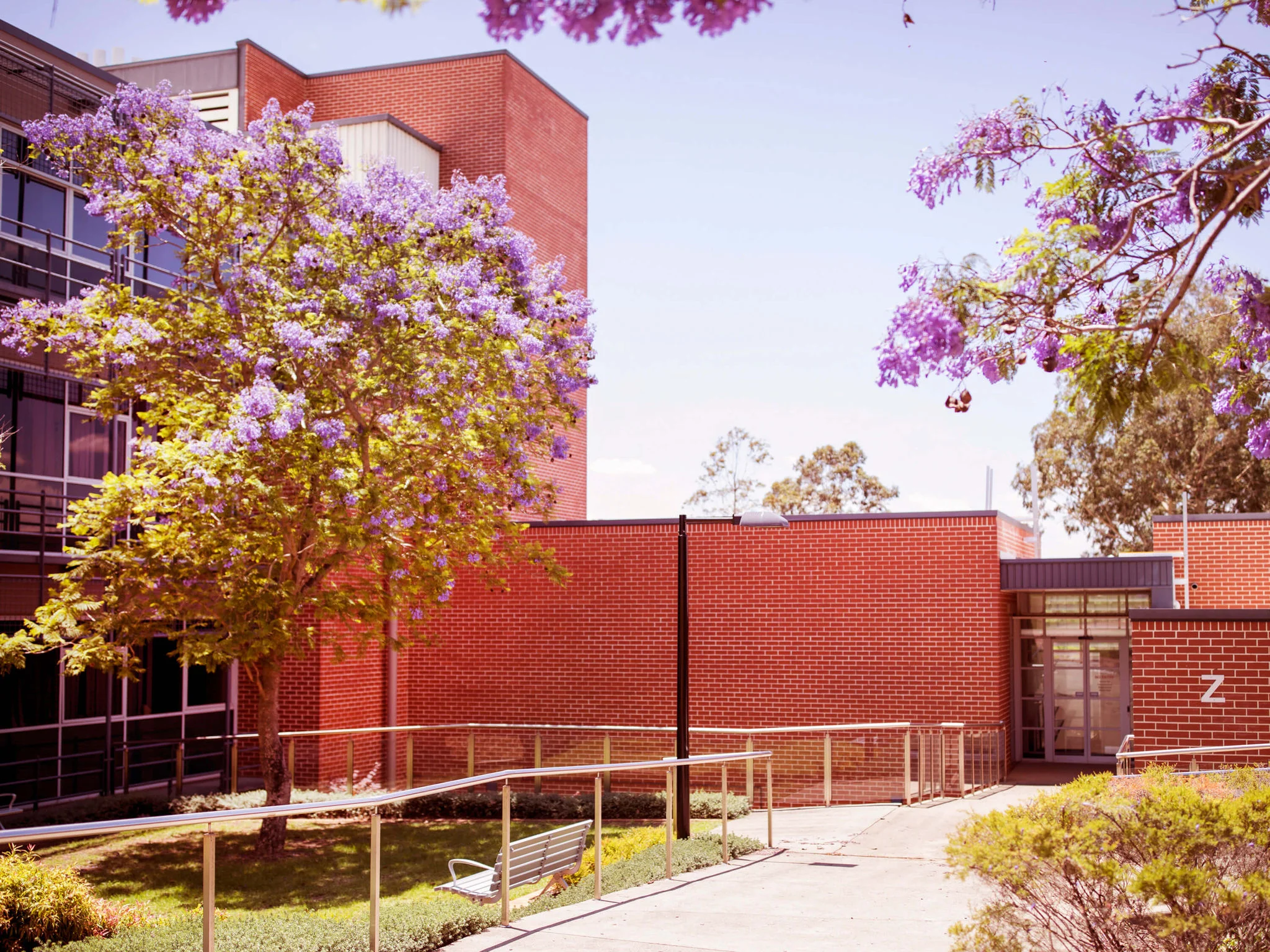Successful completion of this Diploma provides a pathway to the second year of multiple Bachelor degrees at Western, without losing any time.
Diploma in Education Studies
Modular learning
Our modular learning will help you reach your potential, no matter your starting point or ATAR. You’ll study one course-specific subject a time without slowing down.
Introduction
This Diploma will develop the foundational knowledge required for success in the related Bachelor degrees.
With a focus on immersive learning, delivering one course-specific subject at a time, you will explore a multitude of subjects such as psychology, sociology, literacy and numeracy.
What pathways to further study does this Diploma provide?
Upon successful completion of this Diploma, you can transition to the second year of one of the following Bachelor degrees:
- Bachelor of Education (Primary)
- Bachelor of Education (Secondary)
- Bachelor of Education (Primary) Aboriginal and Torres Strait Islander
What are the entry requirements for this course?
To be admitted to this course, you don’t need an ATAR. This program is open to Australian Citizens and Permanent Residents who are aged 17 years or over.
How it works
Our Modular Learning Model offers an immersive study experience with workshop-style classes focused on one course-specific subject at a time, in 4-week blocks. Classes are held on campus - the average timetable includes 3 hours of classes, 3 days a week, meaning you can fit study around your other commitments.
Additional preparatory subjects run across 17 weeks, predominantly online, with one in-person class every 4 weeks. These subjects help you develop confidence in your studies, and transition into further study or the workforce.
You will complete 10 subjects in total for this Diploma. This requires a total of 110 credit points to be completed over the course of one year of full-time study. The course design of the Diploma represents an annual full-time study load that is slightly higher than the standard study load as calculated by the University, which is 80 credit points or 8 subjects, equating to an equivalent full-time study load (EFTSL) of 1. With 110 credit points (achieved through study of 10 subjects) taken over the course of one year, the Diploma represents 1.375 EFTSL with each course-specific subject representing 0.125 EFTSL and each preparatory subject representing 0.1875 EFTSL.
What you can expect to study
This subject introduces students to university culture and life, and explores a range of skills, attributes and behaviours that will gear students for success in their first year of tertiary study. A range of topics will be covered to facilitate increased confidence in students as they embark upon their university journey, as well as enhance students’ capacities to engage critically and actively in their chosen field of study. This subject will equip students with a range of academic study skills, research techniques and multi-literacies, and support students to develop their own individualised learning model, personal learning objectives and academic capacities. Academic integrity is further positioned as a critical component of university life and this subject will prepare students to engage effectively in their future professional fields and as active citizens.
This subject is designed to help students to develop the dispositions and critical skills to create learning communities that are academically challenging, developmentally appropriate and culturally responsive. The subject highlights how the inherent qualities of a child and their environmental systems interact to influence how they grow, develop, and learn. It will develop students' knowledge of the ways in which childrens' development is embedded in context to inform their instructional strategies. It examines a body of classic and current theories, research and practice relating to the cognitive, physiological, and social/emotional needs of children and the relevance of these for classroom practice. Particular emphasis is given to developing responsive teaching practices which promote social and emotional wellbeing of children and are underpinned by high-quality relationships which extend to include the valuing of families and the wider community.
Increasingly, the need to develop sustainable ways of living that can reduce our ecological footprint and conserve precious natural resources for future generations is recognised as a critical concern of education at all levels. Developing 'sustainability literacy' requires new ways of thinking and learning that enable us to recognise the connections between environmental concerns, social patterns, and individual actions. This subject approaches key issues in sustainability education with a learner-centred approach that builds skills for inquiry, analysis and creative action and involves a three-hour field trip. It promotes personal and social change, develops civic values, and will empower students to be a leader for a sustainable future.
The primary purpose of this subject is to equip students with personal literacy and numeracy skills necessary for academic success. This subject aims to develop students personal literacy and numeracy skills necessary for participating in academic and professional contexts. It also supports pre-service teachers as literate and numerate citizens to strengthen positive attitudes, skills, and knowledge about literacy and numeracy roles in everyday contexts. Students will have opportunities to develop their interpersonal, verbal, and non-verbal communication skills. These skills are integral to the inherent requirements of a graduate teacher who will be required to undertake the national literacy and numeracy test mandated by the Australian Government. As a pre-service teacher, students will also develop confidence and competence in their understanding of the roles of literacy and numeracy in society, with particular emphasis on problem-solving and effective communication in practical situations. Students will be provided with opportunities to develop critical self-awareness, self-regulation, and the ability to organise oneself as a self-directed learner. Essential elements of academic scholarship, including information media literacy, understanding assessment, and academic integrity, will be developed.
This subject includes the study of society, culture, gender, ethnicity, sexuality, and social class. It explores sociological understandings of the impact of the social on individuals and how this influences education, knowledge, society, and change. The subject addresses the diverse needs of children in complex contexts. It will provide students with opportunities to reflect on universal assumptions often imposed on children, families, and communities, through applying analytical tools and developing their professional identity as critical reflexive educators.
Theory and the practice of teaching are explored in depth in this subject. This subject explores the necessary teaching and interpersonal skills required to build positive relationships with students and manage the classroom. Students will develop skills in planning, implementing and evaluating the students’ learning which are designed to meet school students’ curriculum needs. It introduces students to a range of teaching strategies and assists with helping to identify when and why to use them. It explores how educational theories and practitioner research underpin and inform curriculum development and pedagogical practice. Integrated in the learning will be the use of information technologies. This subject will also facilitate students in developing a critical understanding of their individual progress towards satisfying the Australian Professional Standards for Teachers at the Graduate level. The knowledge and skills developed in the other subjects of study in the program can be applied in this and the Professional Experience subjects.
This subject is designed to complement the first six months of study in a College Diploma program by developing the skills required to be successful at University and beyond. The subject is delivered online with students accessing learning modules and connecting with their learner community in their own time and at their own pace to allow maximum flexibility. At the beginning of the subject students use diagnostic tools to identify their specific strengths and areas for improvement, and develop an individualised learning journey through the content. This learning journey will help to address individual study skill needs, while also developing employability skills, facilitating connection with peers and with the University community, as well as the student’s future career.
This subject is designed to assist students to take the next step in their academic development by helping them build higher level reflective skills that will allow them to critically consider their own learning and professional journey and make the adjustments required to achieve their goals. Students will begin to take ownership of their learning by developing proactive strategies that will allow them to study on their own terms. Students will begin engaging with their intended profession and reflect on the skills, attributes and qualifications that will be required to reach their goals. Students will also develop a transition plan to help them navigate the next steps in their academic journey so that they can identify the challenges they might encounter as they move forward, and develop the skills to overcome them.
You can see the course credit points for each subject outlined in our handbook.
Career Opportunities
Careers in education are diverse and successful completion of this Diploma provides entry to the second year of the following Bachelor degrees:
- Bachelor of Education (Primary)
- Bachelor of Education (Secondary)
- Bachelor of Education (Primary) Aboriginal and Torres Strait Islander
You can explore the career opportunities available on successful completion of the Bachelor using the above links.
Looking for jobs that are in demand?
Check out these helpful tools that you can use to find out more:
Entry requirements for domestic students
Please consult the handbook for more information regarding entry requirements for this course.
You can read more about special requirements here.
Entry requirements for international students
**Please note, if this course lists a part-time option, this is not available to International Students on a Student Visa.
Please consult the handbook for more information regarding entry requirements for this course.
You can read more about international academic entry requirements here.
Indicative annual fee
The indicative annual fee is based on full-time study over one year requiring the completion of 10 subjects (110 credit points). This study load is slightly higher than the standard study load as calculated by the University, which is 80 credit points or 8 subjects, equating to an equivalent full-time study load (EFTSL) of 1. With 110 credit points (achieved through study of 10 subjects) taken over the course of one year, the Diploma represents 1.375 EFTSL with each course-specific subject representing 0.125 EFTSL and each preparatory subject representing 0.1875 EFTSL. The indicative annual fee has been calculated on the basis of 1.375 EFTSL and is partially subsidised by the Commonwealth – this is known as Commonwealth Supported Place (CSP). The above fee is what the student owes, known as the Student Contribution.
The fee estimates provided are indicative only and subject to change. These estimates are based on the current fee structures for a normal full time study load. However, the final fees may vary depending on several factors, including the specific subjects chosen, the duration and timing of study, and annual fee adjustments (subject to Commonwealth student contribution band rates). Please note that these estimates do not include the Student Services and Amenities Fee. We encourage all prospective and current students to consult with our Student Services Hub for the most current fee information.
As a multi-campus institution, Western Sydney University and its entities reserves the right to alter the location of its programs between campuses and other locations as necessary.
Your student contribution amount will be calculated based on the general discipline area of the subjects you study (this may be different to the discipline area of your course). To work out your fees in advance, visit the Student contribution calculations page.
FEE-HELP
Students that are eligible for HELP (Higher Education Loan Program) loan can use this to avoid paying upfront and instead pay your Student Contribution over time.
HECS-HELP is a Government loan system designed to help eligible domestic students afford higher education. You will only be required to start repaying the loan once your annual income exceeds the compulsory threshold for the relevant income year.
In order to receive HECS-HELP you must be enrolled in a commonwealth supported place (CSP) and be:
- an Australian citizen studying at least some of your course in Australia; or
- a New Zealand Special Category Visa (SCV) holder, or eligible former New Zealand SCV holder; who meets the long-term residency requirements and who studies the entire course while living in Australia; or
- a permanent humanitarian visa holder, or an eligible former permanent humanitarian visa holder; who will be resident in Australia for the duration of your unit(s); or
- a pacific engagement visa (PEV) holder who will be resident in Australia for the duration of your unit(s) (a PEV holder becomes eligible from 1 February 2024)
Apply as a Domestic Student
If you are a domestic student, you can apply through our Western Application system which is free of charge.
Domestic students are:
- Australian Citizens
- New Zealand Citizens
- Australian permanent residents
- Australian permanent humanitarian visa holders
Scholarships
Western Sydney University recognises and rewards students who demonstrate community engagement, outstanding academic ability and superior leadership skills. Donor-funded scholarships are also available, providing support for students based on both academic achievements and equity considerations. There are also scholarships available for specific degrees.
FAQs
12 months (full time).
There are no exams in our Diplomas. Instead, our programs employ a variety of assessment types which may include portfolios, applied project work, fieldwork, and practical tasks. Assessments are authentic, maintain high standards and aim to be reflective of real-world tasks. In addition, teachers work closely with students in small, interactive workshop-style classes, and provide students with individual support. This approach ensures a robust evaluation of students’ skills and knowledge. Non-exam assessments develop essential skills, such as critical thinking and time management, preparing students for traditional exams in later years of their programs.
All of our Diplomas commence with the same subject, providing students with an introduction to University life and allowing them to further explore their chosen professional fields. Should you discover a different diploma better suits your personal goals, you can transfer at this stage with no time lost. Transfers to other diplomas are available at any time throughout the duration of your course, and you will receive credit for any common subjects you have already completed.
Diplomas are recognised in the workforce, and can be used to help you stand out from other job candidates. You can take a look at the potential career opportunities in the careers tab.
In this Diploma, there are two electives which students generally complete as the last two subjects in their course. With a wide range of elective options, you can explore a number of topics and align your studies with your specific interests and career goals.
You can view elective options for this course here.
*Students transitioning to a Bachelor in Education should select electives that relate to their teaching discipline.
Want to know more?
We're here to help.
If you're uncertain about your study journey, enquire about our courses today and gain the confidence to move forward.
Australian students
1300 668 370

What's the difference between a Bachelor degree and a Diploma?
Ever wondered about the difference?
A Diploma offers specialised learning, focused on gaining job-ready skills or preparing you for further study in a particular field. It is:
- Generally more accessible than a Bachelor with flexible entry requirements.
- Faster to complete - on average 12 months of full time study.
- Ideal for anyone who wants to upskill, earn credit towards a Bachelor degree, or start a career.
With a Western Diploma, you study for 12 months through our Modular Learning model at The College.
Upon completion, you graduate job-ready or can transition into the second year of a Bachelor at Western - gaining two qualifications in the time of one. This makes it the ideal choice for those who:
- are looking to do their first year of uni differently, and/or
- need more time to uncover their passion - most of our Diplomas provide pathways (and 12 months credit) into more than one Bachelor course, and/or
- are aspiring for a career in a high-growth industry that doesn't require a Bachelor.
The fee estimates provided are indicative only and subject to change. These estimates are based on the current fee structures for a normal full time study load. However, the final fees may vary depending on several factors, including the specific subjects chosen, the duration and timing of study, and annual fee adjustments (subject to Commonwealth student contribution band rates). Please note that these estimates do not include the Student Services and Amenities Fee. We encourage all prospective and current students to consult with our Student Services Hub for the most current fee information.
As a multi-campus institution, The College reserves the right to alter the location of its programs between campuses and other locations as necessary.






